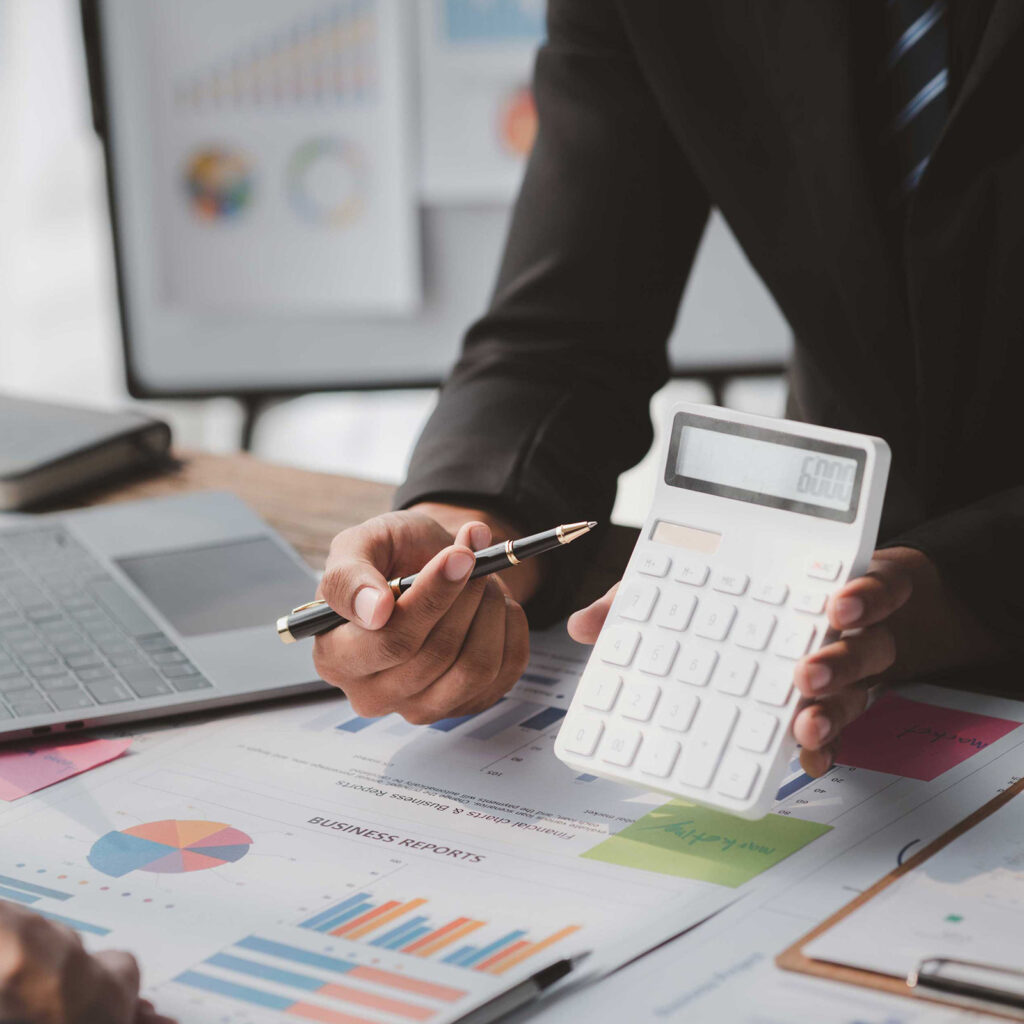While it’s understandable that some NYC restaurant owners might feel overwhelmed by the complexity of local tax laws, they can’t afford to ignore them. An accurate understanding of the NYC restaurant tax is not only crucial for compliance but also for financial planning and optimization.
A misstep could lead to penalties, while a well-informed strategy could save considerable resources. So, what are the key elements that every owner should be aware of, and how can they ensure they’re handling their taxes correctly? Let’s navigate this crucial aspect together.
Key Takeaways
- NYC restaurant tax encompasses sales, corporate, unincorporated business, property, commercial rent, and payroll taxes with a sales tax rate of 8.875%.
- Certain exemptions and special tax rules can potentially reduce a restaurant’s tax liability, including sales tax exemptions on specific items.
- Accurate calculation of restaurant tax, utilizing tools like the Restaurant Tax NYC Calculator, is essential to ensure legal compliance and prevent overpayments.
- Employing professional bookkeeping services can greatly assist in managing NYC restaurant tax, ensuring accurate records, compliance, and strategic tax optimization.
Learn more about our Accounting Services!
What is NYC Restaurant Tax?
The NYC Restaurant Tax is a financial obligation that all restaurant owners in New York City must meet. It consists of different rates and types, and there are special rules and exemptions that can apply. Understanding these elements is crucial for restaurant owners to ensure they’re meeting their legal responsibilities and potentially saving money.
Understanding NYC Sales Tax Rates for Restaurants
Navigating NYC’s restaurant tax maze can be tricky, but it’s crucial for owners to understand that this sales tax constitutes 8.875% of the gross receipts from every taxable sale. The NYC restaurant tax is calculated using a restaurant tax NYC calculator, a tool that aids in precise assessment. Proper bookkeeping, like the services provided by NYC bookkeeping firms, is essential for managing these taxes effectively.
Specifically, restaurant bookkeeping NYC services are knowledgeable in dealing with the complexities of the hospitality financial accounting, including hotel bookkeeping. These experts in New York bookkeeping can guide restaurant owners through the intricate details of the restaurant tax NYC imposes, ensuring compliance and mitigating any potential financial pitfalls.
Common Types of Taxes Restaurants Must Pay in NYC
Beyond the sales tax, restaurants in NYC are also obliged to pay a variety of other taxes, each with its own set of complexities and stipulations. These include the corporate tax, which is levied on a restaurant’s net income, and the unincorporated business tax, applicable to businesses that aren’t corporations. They’re also subject to property tax if they own the premises, and commercial rent tax if they lease a property in Manhattan’s busiest areas.
Additionally, they must pay payroll taxes, which is a combination of federal, state, and local taxes withheld from an employee’s earnings, and the Metropolitan Transportation Authority surcharge. Understanding these tax obligations is a crucial part of running a successful restaurant in NYC.
Exemptions and Special Tax Rules for NYC Restaurants
Despite the array of taxes NYC restaurant owners face, there are certain tax exemptions and special rules that can lighten their financial burden. For instance, there’s no sales tax on unprepared food items or products sold for off-premises consumption. Furthermore, if a restaurant’s annual gross income is less than $110,000, they’re exempt from the commercial rent tax.
Additionally, specific tax credits are available for small businesses, including restaurants, which can significantly reduce their tax liability. It’s also important to note that tax laws can be complex and ever-changing. Therefore, it’s advised that restaurant owners seek professional tax advice to ensure they’re taking full advantage of any potential tax breaks and staying compliant with all tax obligations.

How to Calculate Restaurant Tax in NYC
Calculating restaurant tax in NYC can seem intimidating, but it’s vital to get it right to avoid oversights and overpayments. One useful tool is a Restaurant Tax NYC Calculator, which can help ensure accuracy. It’s also crucial to understand the difference between taxable and non-taxable items in your restaurant’s offerings.
Using a Restaurant Tax NYC Calculator for Accuracy
If you’re a restaurant owner in New York City, using a restaurant tax calculator can ensure the accuracy of your tax computations. This tool is designed to simplify the intricate process of tax calculation, providing you with precise figures in a matter of seconds. It factors in the city’s specific tax laws and rates, reducing the risk of errors that could lead to penalties or fines.
Simply input your restaurant’s gross sales, and the calculator will output the corresponding tax amount. It’s a reliable, easy-to-use solution that eliminates guesswork and promotes compliance with NYC tax regulations. Bear in mind, while it’s a helpful tool, it doesn’t replace professional tax advice. Always consult a tax professional for comprehensive guidance.
Breaking Down Taxable and Non-Taxable Items
Ever wondered which items in your NYC restaurant are taxable and which aren’t? It’s essential for restaurant owners to understand the distinction to ensure accurate tax calculations. Here’s a simplified break-down:
- Prepared food and beverages: These are taxable. It includes your main dishes, appetizers, desserts, and drinks.
- Unprepared food: If you sell unprepared, packaged food like chips or cookies, they are typically tax-free.
- Alcoholic beverages: All types of alcoholic beverages are taxable in NYC.
- Gratuities and service charges: If they are separately stated on the bill, they are not subject to sales tax.
Knowing what’s taxable and what isn’t is fundamental to your restaurant’s financial health. It helps in avoiding overpayments and penalties.
Avoiding Overpayment with Proper Tax Calculations
Understanding which items are taxable isn’t enough, restaurant owners also need to know how to accurately calculate these taxes to avoid unnecessary overpayments. It’s crucial that they apply the correct tax rate—8.875% in New York City—to the right items. Missteps could result in significant overpayments or penalties.
They can streamline this process by maintaining a thorough, up-to-date record of their sales. Separate records should be kept for taxable and non-taxable sales.
Here’s a simple breakdown:
| Description | Rate |
| Taxable sales | 8.875% |
| Non-taxable sales | 0% |
The Role of Accurate Bookkeeping in NYC Restaurant Tax Compliance
Accurate bookkeeping plays a pivotal role in NYC restaurant tax compliance. It’s not only about staying organized, but also about understanding why maintaining meticulous financial records is crucial for calculating taxes accurately. Let’s explore how professional bookkeeping services can save time, reduce errors, and streamline financial records in the hospitality industry.

Why Restaurant Bookkeeping in NYC is Crucial for Taxes
In the bustling world of New York City’s restaurant scene, maintaining precise bookkeeping isn’t just beneficial, it’s crucial for staying on top of taxes and avoiding costly penalties. When bookkeeping is done accurately, it enables restaurant owners to:
- Track income and expenses, providing the needed data for tax calculations.
- Identify potential tax deductions, such as food costs and employee wages.
- Avoid underpayment or overpayment of taxes, which could lead to audits or penalties.
- Maintain accurate financial records for future reference or in case of audits.
In essence, bookkeeping isn’t just about keeping tabs on the business’ financial health. It’s a vital tool in ensuring tax compliance, reducing the risk of costly errors and penalties.
Bookkeeping Services in NYC: Saving Time and Reducing Errors
To save time and reduce errors in the taxing process, many NYC restaurant owners are turning to professional bookkeeping services. These experts can streamline the financial management process, ensuring that all income, expenses, and taxes are accurately recorded. They can also keep track of changing tax laws and regulations, which might be overlooked by busy restaurant owners.
Streamlining Financial Records with Hospitality Financial Accounting
With the complexities of NYC restaurant tax compliance, it’s clear that maintaining accurate financial records through hospitality financial accounting can significantly streamline the process. This approach not only simplifies the tax filing process but also helps identify financial trends and areas for improvement.
- Accuracy: Precise bookkeeping ensures compliance with NYC tax laws and reduces the risk of penalties.
- Efficiency: Streamlined records eliminate unnecessary time spent on tax preparation.
- Analysis: Accurate data allows for detailed financial analysis, aiding in business decisions.
- Forecasting: Reliable records provide the foundation for accurate budgeting and future financial planning.
In essence, effective financial accounting is a game-changer for NYC restaurant owners, aiding in tax compliance and strategic financial management.
Special Considerations for Hospitality Businesses
Hospitality businesses in NYC face unique considerations when it comes to tax compliance. Differences between hotel bookkeeping and restaurant accounting can further complicate these matters. To navigate this complex landscape, many turn to professional support for their tax filings.
Key Differences Between Hotel Bookkeeping and Restaurant Accounting
In the bustling world of hospitality, it’s crucial to understand that hotel bookkeeping and restaurant accounting come with their own unique set of challenges and nuances.
- Inventory Management: Hotels usually have a fixed set of assets to monitor, while restaurants must vigilantly track perishable goods.
- Sales Volume: Restaurants typically handle a greater volume of smaller transactions, whereas hotels deal with fewer, larger transactions.
- Staffing Expenses: Restaurants often have more staff working fewer hours, leading to complex payroll management, while hotels generally maintain a steady workforce.
- Operating Hours: Restaurants usually have peak hours and off-peak hours which can influence earnings and costs, whereas hotels operate round-the-clock, leading to a more stable revenue stream.
Understanding these differences can help optimize finances in both sectors.
Challenges Unique to Hospitality Financial Accounting in NYC
Navigating the intricacies of financial accounting within the hospitality industry, particularly in a metropolis like New York City, presents its own unique set of challenges. From adhering to city-specific tax laws to managing high operational costs, restaurant owners often grapple with a host of financial complexities.
Here’s a brief look at some of these issues:
| Challenge | Description |
| City-Specific Taxes | Navigating NYC’s complex tax system |
| High Operational Costs | Covering high rent and labor costs |
| Dynamic Revenue | Managing fluctuating income due to seasonality |
| Inventory Control | Accurately tracking food and beverage costs |
| Regulatory Compliance | Ensuring adherence to city and state regulations |
These challenges demand a robust financial strategy and a comprehensive understanding of NYC’s hospitality industry.
Leveraging Professional Support for Complex Tax Filings
Given the complexity of NYC’s tax system, restaurant owners often turn to professional accountants for help with their tax filings. The expertise and experience of these professionals can prove invaluable, particularly when dealing with the intricacies of the hospitality industry’s tax obligations. Here are four key reasons why:
- Error Reduction: Professionals minimize the risk of costly mistakes in tax filings.
- Time-saving: They handle the daunting tax paperwork, freeing up your time.
- Regulatory Updates: Accountants stay abreast of the latest tax laws, ensuring compliance.
- Financial Planning: They provide strategic advice for tax optimization.

Best Practices for Managing NYC Restaurant Tax
Effectively managing NYC restaurant tax involves several best practices. Staying organized with New York bookkeeping services, preparing for audits with accurate financial records, and partnering with experts in restaurant bookkeeping in NYC are key strategies. These steps can help restaurant owners navigate the complex tax landscape of the city.
Staying Organized with New York Bookkeeping Services
To keep your restaurant’s finances in check while managing NYC restaurant tax, it’s essential to consider employing a New York bookkeeping service. They’ll ensure your financial records are accurate, well-organized, and up-to-date, providing peace of mind and more time to focus on running your business.
- Accuracy: Professional bookkeepers maintain precise records, reducing errors in your financial data.
- Efficiency: They streamline financial tasks, saving you valuable time.
- Compliance: They’re well-versed in NYC’s complex tax laws, ensuring you meet all legal requirements.
- Support: They provide invaluable financial insights, helping you make informed business decisions.
Don’t underestimate the power of organized bookkeeping. It’s a strategic investment that pays off by easing the burden of tax management.
Preparing for Audits with Accurate Financial Records
In addition to facilitating efficient tax management, accurate bookkeeping can also prove invaluable when you’re preparing for audits. Keeping meticulous records helps in identifying inconsistencies and potential areas of concern before an audit. It’s crucial to maintain records of all income and expenses, as well as document any cash transactions.
Below is a table highlighting the essential financial records necessary for audit preparation:
| Financial Records | Purpose |
| Sales Records | Confirm income and sales tax collected |
| Expense Receipts | Validate tax-deductible expenses |
| Cash Transaction Records | Trace all cash inflows and outflows |
| Inventory Records | Verify cost of goods sold |
These records provide a clear picture of your restaurant’s financial health. They’re not just about avoiding penalties, they’re about maintaining a successful business.
Partnering with Experts in Restaurant Bookkeeping NYC
Navigating the complex landscape of NYC restaurant taxes becomes significantly easier when partnering with experienced bookkeeping professionals. They’re well-versed in the city’s unique tax laws and can help restaurateurs manage their tax responsibilities effectively.
Consider the following benefits of this partnership:
- Expert Guidance: Professionals can navigate complex tax laws, minimizing errors and reducing the risk of audits.
- Time-saving: You’ll save valuable time, allowing you to focus on running your restaurant.
- Financial Planning: Experts can help with budgeting and financial forecasting, ensuring your restaurant stays profitable.
- Peace of Mind: With experts handling your books, you can rest assured knowing your tax obligations are being managed accurately.
Partnering with bookkeeping professionals isn’t just smart business; it’s essential for NYC restaurant owners.
NYC Hospitality Alliance: Industry Statistics
Conclusion
Understanding NYC restaurant tax can seem daunting, but it’s crucial for every restaurant owner. Accurate bookkeeping plays a vital role in ensuring tax compliance, and special considerations are necessary for hospitality businesses. Despite the complexities, managing your restaurant’s tax doesn’t have to be a nightmare. With best practices and a clear understanding of how to calculate your tax, you’ll navigate your financial obligations with ease, ensuring your restaurant’s success in the vibrant NYC dining scene.
Frequently Asked Question
What Are the Penalties for Non-Compliance With NYC Restaurant Tax Laws?
In terms of non-compliance with NYC restaurant tax laws, they’re facing severe penalties. These include hefty fines, interest on unpaid taxes, and in extreme cases, the possibility of imprisonment or closure of their establishment.
Are There Any Tax Exemptions Available for NYC Restaurants?
Yes, there are tax exemptions available for NYC restaurants. These include the Commercial Expansion Program and the Industrial & Commercial Incentive Program. It’s crucial that owners stay informed to take advantage of these opportunities.
How Does the NYC Restaurant Tax Affect Pricing for Customers?
The NYC restaurant tax directly impacts customer pricing. It’s added to the cost of meals, increasing the overall bill. Therefore, customers aren’t just paying for food, they’re also contributing to the city’s tax revenue.
Can the NYC Restaurant Tax Rate Change, and if So, How Often and by Whom Is It Determined?
Yes, the NYC restaurant tax rate can change. It’s typically adjusted annually by the local government. However, it can vary based on economic conditions, budget needs, and decisions made by city officials.




















